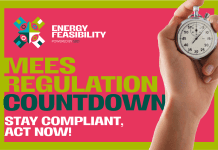Ian Streets of About Access discusses accessibility at the procurement stage

The old adage that you get what you pay for applies in the area of accessibility as much as anywhere else.
If you buy the best car you can afford, then you’re investing in reliability and reducing the likelihood that it will break down in the future, usually when you need it most.
If you spend a bit of money on labour-saving devices at work, for example improvements to IT and admin systems, then you can free-up your staff to concentrate on productive tasks rather than procedural chores.
In exactly the same way, if the principles of good accessibility are to be embedded within an organisation that process should start with procurement. You will then ensure that whether you are buying products or services, any likely impact on accessibility will be considered from the start.
That means highlighting accessibility issues when you draw up a tender document, but it doesn’t mean being too specific or prescriptive. It can bring benefits in the short term and the long term to encourage bidders to think for themselves about the options around accessibility rather than to tell them exactly what to do and how to do it.
With a construction project you might take the approach of advising that ensuring the accessibility of a site or facility is of the utmost importance, and you could always spell out that meeting the requirements of BS8300 is a minimum standard. But you will find out more about your potential project partners if you let them explore possible solutions and bring them to you.
If your brief is too rigid you risk stifling creativity and innovation, and you might also overlook certain scenarios around a project with the result that unforeseen difficulties emerge as the work progresses. It is better to set out the ends and to leave the means to the supplier, provided you ensure that the requirements are backed up by a recognised standard. BS8300 is something that all parties can work to throughout the design and construction process.
But the assurance that accessibility awareness is embedded into the procurement process is no substitute for having an access consultant as part of your design team.
There is no guarantee that even the best plans will unfold smoothly. When problems arise it can become essential to deviate from current recognised design standards. It might happen with historic environments, where the listed status of properties and features is such that meeting current guidance in Approved Document M or BS8300 is not feasible. The result may be that reasonable adjustments therefore have to be made, and you will be better equipped to do this if you can refer to an access consultant who has followed the project from the start.
At the planning and procurement stage you have the best opportunity to ensure everybody has a good understanding of what’s expected. In choosing your architect, designer or project management company they should know from the outset that they will be expected to fully understand and be committed to having accessible results.
The policy of setting the baseline for the levels of accessibility at the procurement stage of a project does not just apply to major construction works. In delivering any service you offer, you should consider your buying decisions and whether they are affecting the level of accessibility of individual or business customers.
If you have to offer your service in a different way because poor design has created accessibility problems then you are introducing a weak link in your business. You might have to make that adjustment several times a day, disrupting the way you work and increasing the demands on your staff.
You can reduce the likelihood of having to make adjustments if you get your design right at the first opportunity, and that starts with procurement.
In planning to make sure that a building is accessible you should look carefully at how people arrive at the property. You’ll consider the dropping-off points for public transport, and you’ll obviously ensure the car park is accessible, with sufficient disabled parking spaces all designed and laid out to the correct specification. But you need to adopt the same mindset when procuring the services of a car park management or enforcement company. Their staff must be aware of the requirements of disabled users of the car park.
Similarly, you could be looking for a hospitality company or event management business to run a corporate function or to provide a venue. As part of the procurement process you would set out that they need to have appropriate disability confidence training. If you run a hospitality business or location you can expect prospective clients to consider accessibility, even if it is just a family occasion rather than a major conference. The bride’s big day can be ruined if a guest who is elderly or who has an impairment is unable to enjoy the celebration to the full because they can’t access all the facilities.
If you want to know more, or you have a question or concern, please contact us at info@aboutaccess.co.uk













![[VIDEO]What to expect when you’re inspecting: Using DorTrak for fire door inspections](https://www.pbctoday.co.uk/news/wp-content/uploads/2025/02/maxresdefault-218x150.jpg)